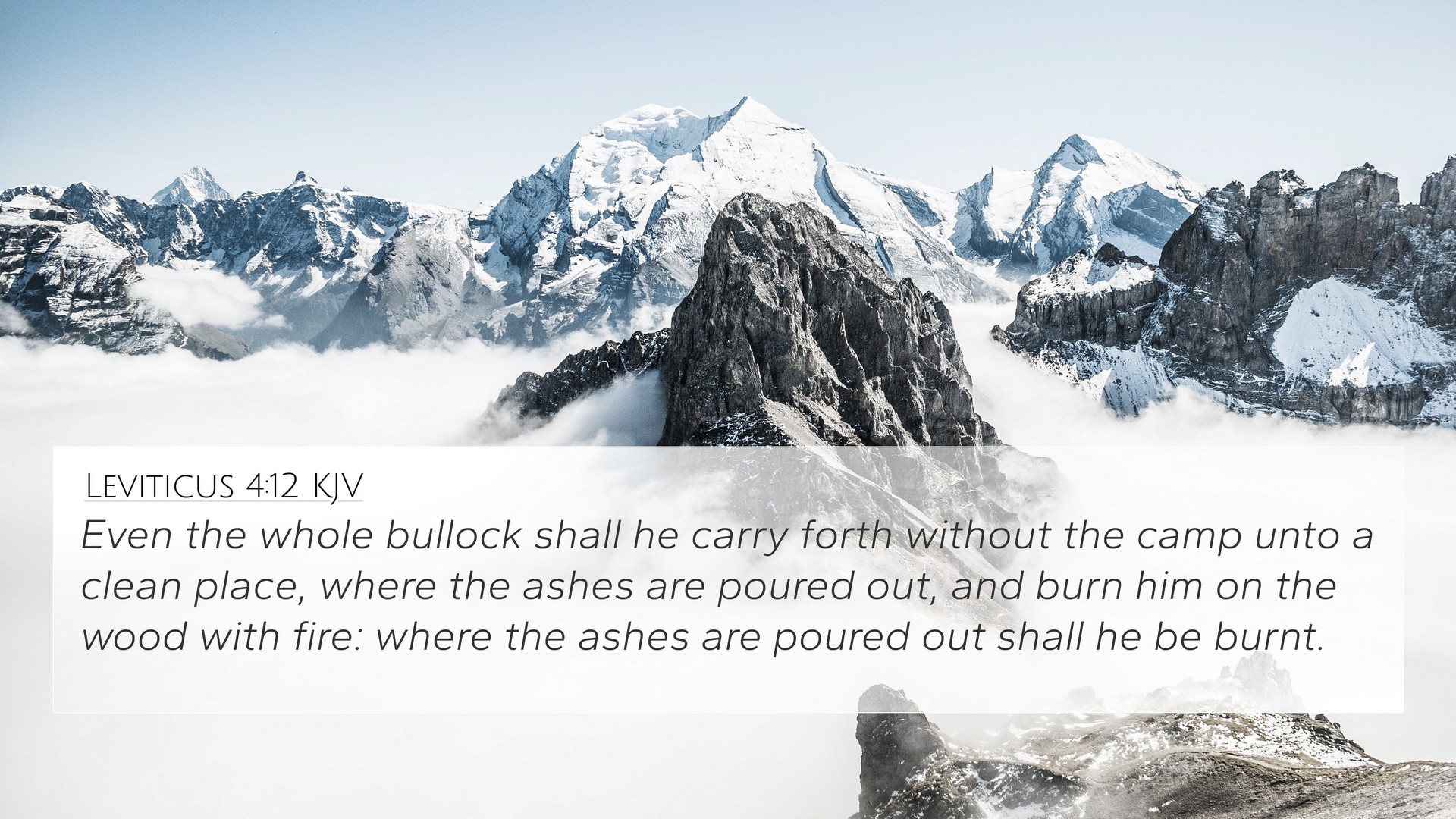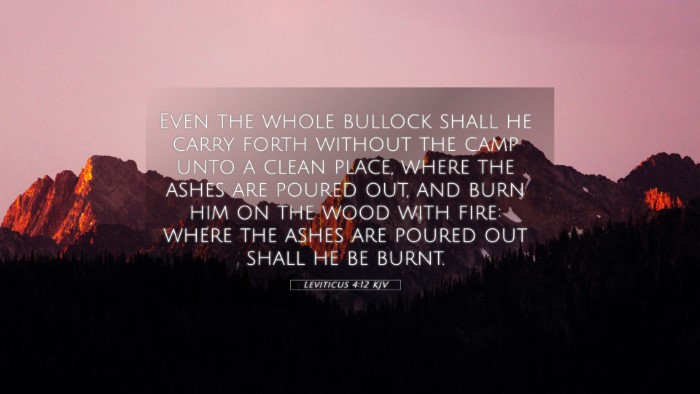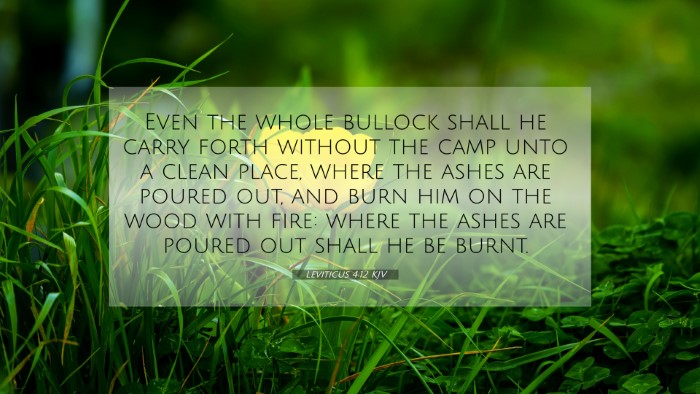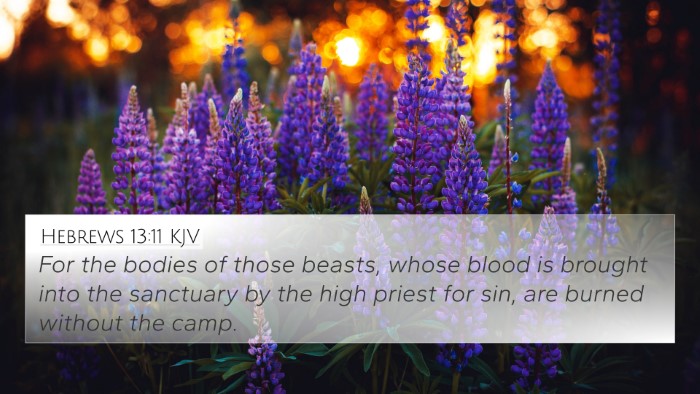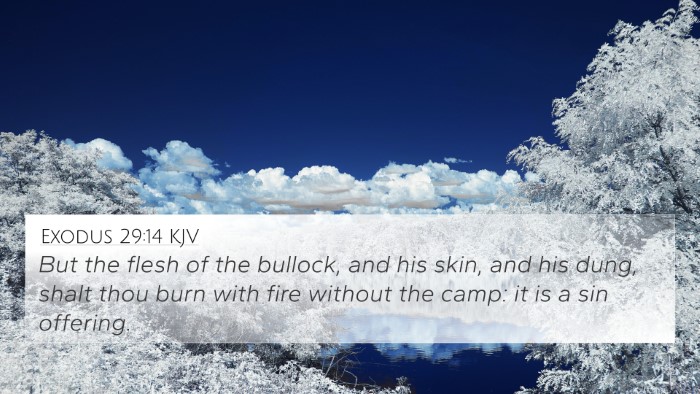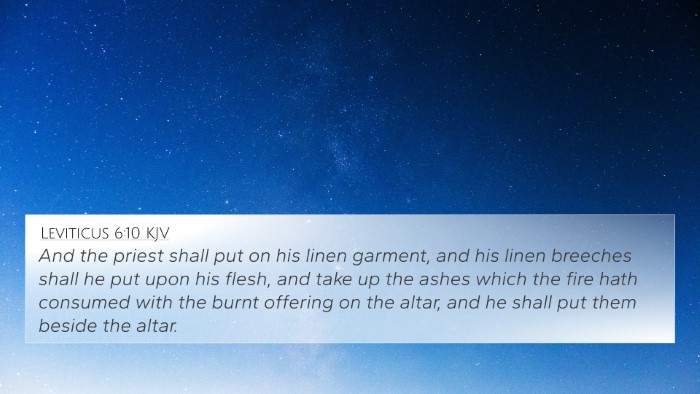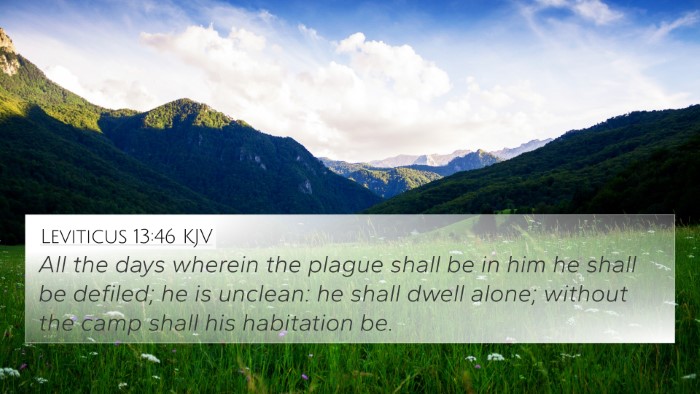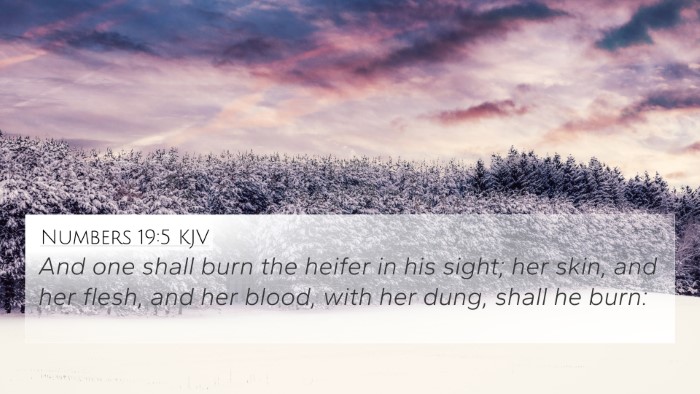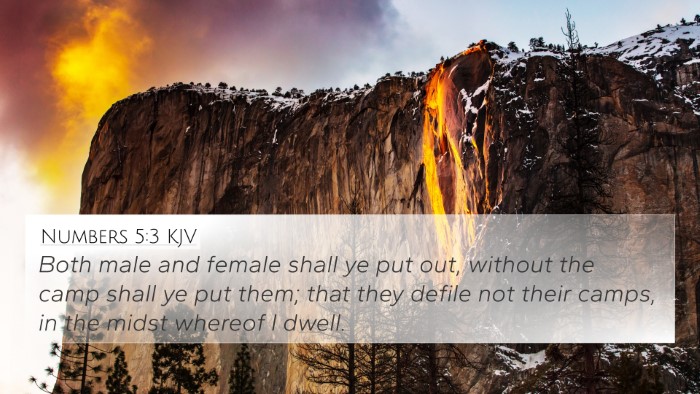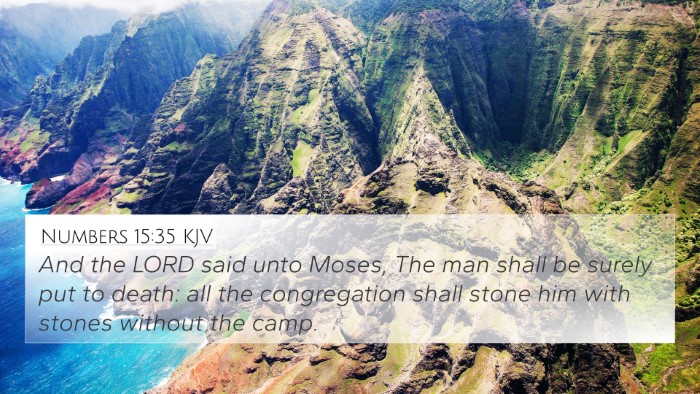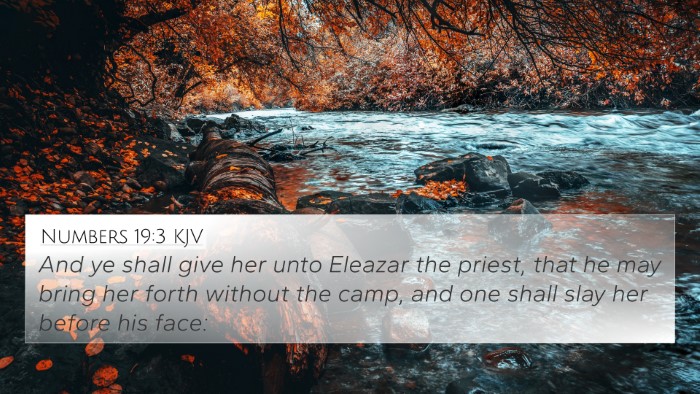Understanding Leviticus 4:12
Leviticus 4:12 presents an important principle concerning sin offerings in the law of Moses. This verse states:
"And the whole bullock shall he carry forth without the camp unto a clean place, where the ashes are poured out, and burn it on the wood with fire; where the ashes are poured out shall it be burnt."
Summary of Meaning
This verse outlines the procedure for dealing with sin offerings, particularly highlighting the disposal of the sacrificial animal outside the camp. The act of taking the whole bullock signifies the seriousness of sin and the necessity of purification. It teaches a concept of atonement that carries both ritualistic and spiritual significance.
Insights from Commentaries
-
Matthew Henry:
Henry emphasizes the importance of ceremonial cleanliness and the symbolism of the bullock being taken outside the camp. This act represents the removal of sin and a fresh start for the community. It shows how seriously God regards sin and the lengths to which He requires His people to go for atonement.
-
Albert Barnes:
Barnes explains the necessity of the bullock being burnt entirely. This signifies not only God's wrath against sin but also the full commitment required in the process of atonement. The ashes, removed from the camp, signify the total removal of sin, highlighting the hope of restoration and forgiveness.
-
Adam Clarke:
Clarke notes that this practice illustrates the need for sin to be dealt with outside the community symbolically. It emphasizes the separation of sin from the lives of the faithful, showcasing God’s desire for His people to lead a pure and holy life, free from the burdens of iniquity.
Biblical Context and Cross-References
To fully grasp the implications of Leviticus 4:12, it is essential to recognize its connections with other Biblical verses. Below are key cross-references:
- Hebrews 13:11-13: Illustrates the connection between the sacrificial system and Christ's ultimate sacrifice outside the city.
- Exodus 29:14: Discusses the necessity of burning the flesh of sin offerings outside the camp as an act of purification.
- Numbers 19:9: Details the significance of ashes in the cleansing process, linking them to sacrifices and offerings.
- Isaiah 53:6: Points to the concept of all humanity straying, and the implications that they have all carried sin upon themselves.
- Romans 8:3: Declares the effectiveness of Christ’s sacrificial offering as the fulfillment of the law against sin.
- 1 Peter 2:24: Affirms that Christ bore our sins in His body on the tree, paralleling the removal of sin in Leviticus.
- Leviticus 16:27: Contains concepts of sin offerings and the cleansing of the people through the sacrifice in another ritual.
Thematic Connections
Leviticus 4:12 provides not only a method of dealing with sin but also meaningful thematic connections.
- Purification: The act of burning away sin is a metaphor for spiritual cleansing.
- Redemption: The necessity for offerings underscores God's system of saving grace.
- Exile of Sin: By taking the offering outside the camp, it symbolizes taking sin away from the community.
Conclusion
Leviticus 4:12 serves as a foundational text in understanding the significance of sin offerings. Its implications extend beyond the physical act of sacrifice and speak to deeper theological themes concerning atonement and purification.
Cross-referencing this verse with the broader Biblical narrative enriches our understanding of God's desire for holiness and restoration. By delving into the connections between these scriptures, we can see a cohesive message of grace throughout both the Old and New Testaments.
